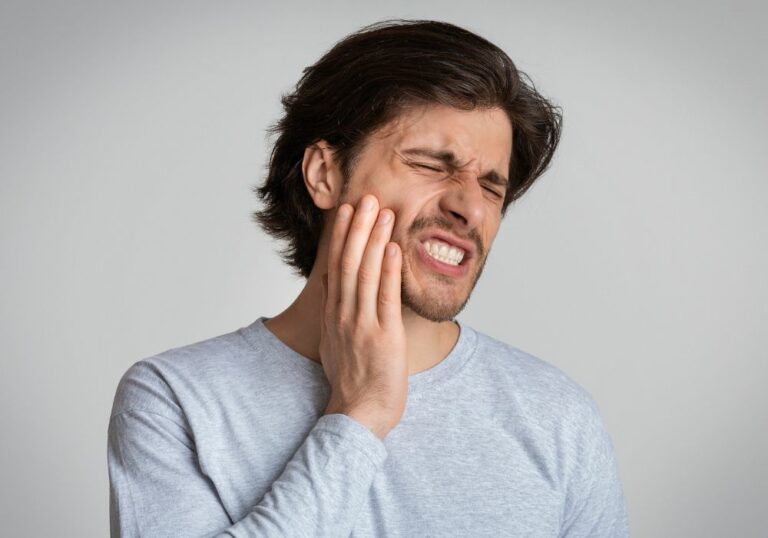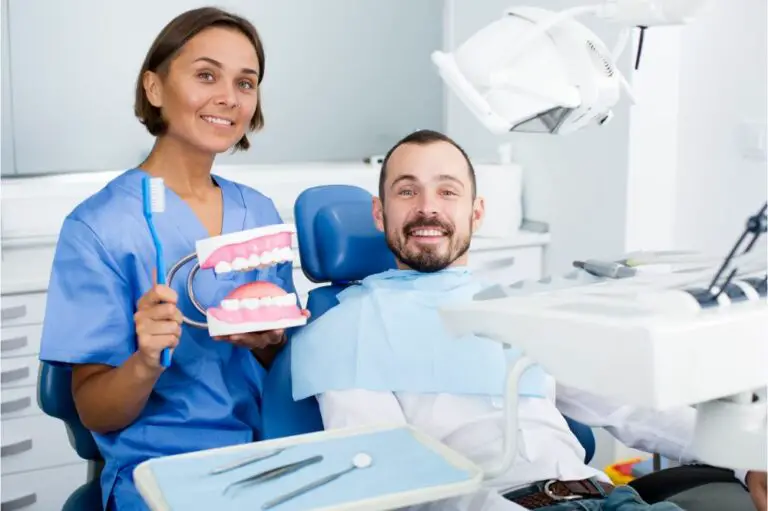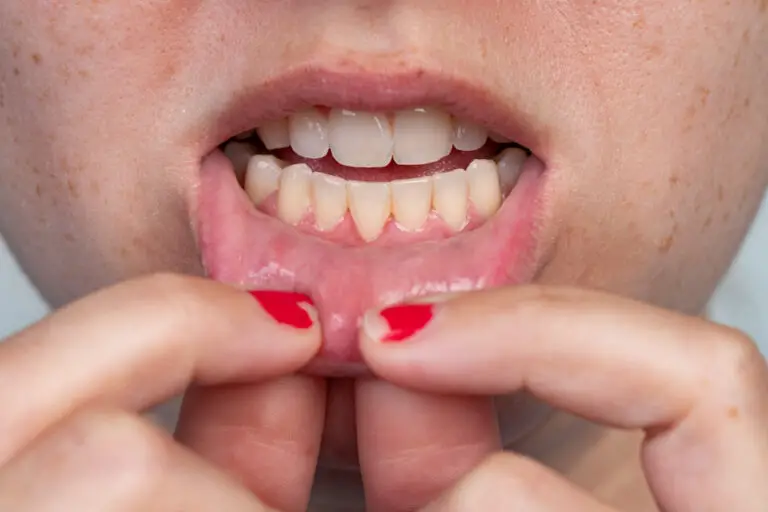Teeth grinding, known medically as bruxism, is a surprisingly common condition in children. Studies estimate that anywhere from 10% to 38% of kids grind their teeth at some point. While the majority outgrow it by adulthood, bruxism can potentially lead to complications like jaw pain, headaches, and damaged teeth if left untreated.
What causes bruxism is not fully understood, but a number of factors may contribute. One theory that has garnered some research interest is that intestinal worm infections could trigger involuntary teeth grinding in kids. Several studies have uncovered links between parasites like pinworms and an increased incidence of bruxism. This article takes an in-depth look at the evidence surrounding worms as a potential culprit in pediatric bruxism.
Defining bruxism
Also called tooth grinding or clenching, bruxism is defined as the excessive grinding or clenching of teeth. It typically occurs during sleep, but awake bruxism can also happen.
The forceful grinding wears down tooth enamel, while the constant clenching strains the jaw muscles. This often leads to symptoms like:
- Audible grinding noises – Most telling is the sound of crunching or clicking teeth as the child sleeps
- Tooth wear – Flattened surfaces, fracture lines, increased tooth mobility
- Soreness – Pain or tiredness in the jaw muscles and joint
- Headaches – Particularly upon waking up in the morning
- Damage – Chipped, cracked, or broken teeth are possible
Bruxism is categorized into two circadian patterns:
- Sleep bruxism – Involuntary grinding during sleep
- Awake bruxism – Semi-intentional clenching and grinding during waking hours
Sleep bruxism is the most common type in children. The repetitive grinding puts significant force on teeth. While only a small percentage develop severe complications, consequences can include tooth loss or the need for crowns if left unmanaged.
What triggers bruxism in kids?
The origins of bruxism are multifactorial, meaning a variety of interrelated factors are likely at play:
- Genetic predisposition – Tendency can run in families
- Malocclusion – Issues with the bite alignment of teeth
- Respiratory issues – Breathing disorders during sleep
- GI problems – Gastroesophageal reflux, constipation
- Neurologic disorders – Cerebral palsy, epilepsy, sensory processing disorder
- Medications – SSRI antidepressants, some asthma meds
- Stress and anxiety – Negative emotions produce parafunctional grinding habits
- Sleep disturbances – Sleep apnea, snoring, insomnia
- Nutritional deficiencies – Magnesium, iron, certain vitamins
- Parasitic infections – Most notably pinworms and roundworms
For many kids, bruxism arises due to a combination of genetic tendency coupled with one or more environmental triggers. The role of parasites and worm infections is one link that deserves a closer look.
The worm infection theory
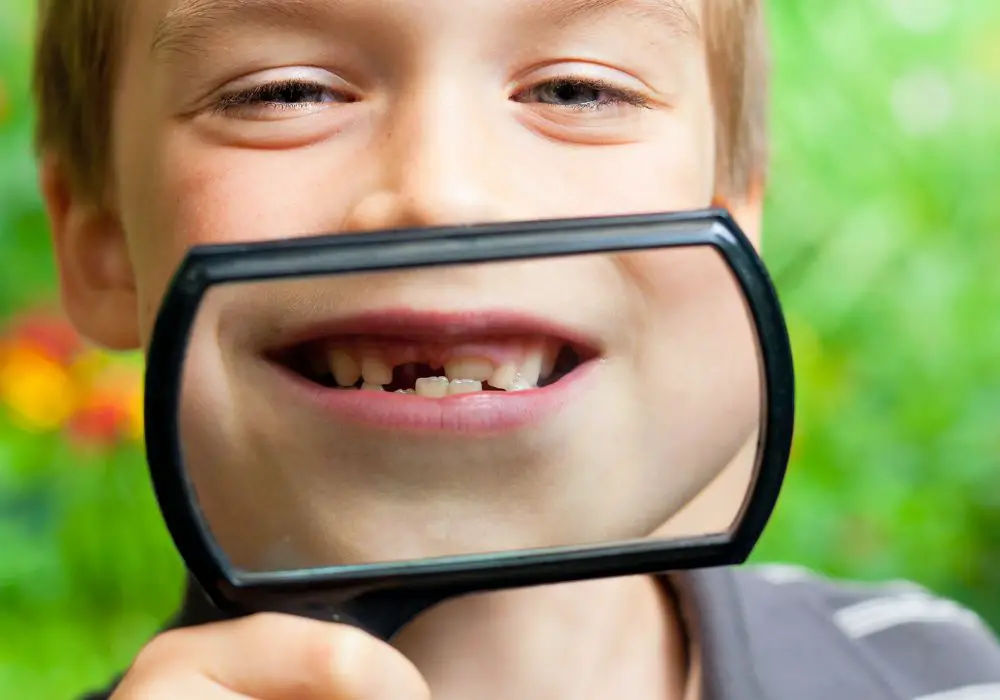
Multiple research studies have suggested a correlation between parasitic worm infections and bruxism occurrence in children:
- A 2002 study found 68% of bruxism patients tested positive for at least one type of intestinal parasite. The three most common were pinworms, roundworms, and whipworms.
- In a Brazilian study of children aged 2 to 12 years, those with bruxism were over 5 times more likely to have a positive test for intestinal parasites compared to the control group.
- Numerous clinical studies have documented reduction or remission of bruxism symptoms in children following pharmacological treatment to eradicate worms.
Based on this body of research, the theory has emerged that worms may serve as a contributing causal factor in some cases of childhood bruxism. But how might parasitic organisms trigger teeth grinding?
Mechanisms linking worms and bruxism
Researchers have proposed two primary mechanisms to explain the likely relationship between worms and involuntary teeth grinding:
- Inflammatory response
Intestinal worms and other parasites trigger an inflammatory immune reaction in the body. This leads to irritated nerves, pain signals to the brain, and a cascade of biochemical changes. Scientists speculate the inflammation sparks repetitive grinding as an attempt to cope with the discomfort.
Some worms also migrate through bodily tissues, exacerbating nerve inflammation. The microscopic larvae of certain parasites may invade the central nervous system directly, interfering with normal nerve transmissions and provoking muscle hyperactivity like bruxism.
- Nutritional disruption
By robbing the body of vital nutrients, worms can create nutritional deficiencies known to disrupt proper nervous system function. Specifically, inadequate intake of iron, magnesium, zinc, and B vitamins are thought to play a role in abnormal muscular activity. This nutritional depletion may lower the threshold for subconscious teeth grinding.
Thus intestinal parasites likely instigate bruxism through both nerve inflammation effects and nutritional mechanisms. But which worms are the main culprits?
Parasites most associated with bruxism
Research points to two intestinal worms as prime suspects in triggering teeth grinding:
- Pinworms
The pinworm Enterobius vermicularis has the strongest correlation to bruxism based on multiple studies. As tiny thread-like worms that embed in the colon, pinworms spark intense itching and irritation. This inflames pelvic nerves that may set off muscular hyperactivity manifesting as involuntary grinding of the teeth.
- Roundworms
Roundworms in the genus Ascaris are large intestinal parasites also well-documented as instigators of bruxism. As voracious consumers of host nutrients, they can deplete magnesium, iron, and vitamin B12 to disrupt nervous system functioning. The worms’ migration through tissue also raises inflammation.
While pinworms and roundworms have the best evidence, other parasites like whipworms, hookworms, and Strongyloides stercoralis have also been associated with increased bruxism. However, more research is needed to fully confirm specific worm species as clear causes of teeth grinding.
Diagnosing worm-related bruxism
When bruxism seems suspected to stem from an intestinal worm infection, diagnostic testing can confirm:
Medical history
A physician will inquire about risk factors for parasitic infection like recent travel, diarrhea, and animal exposure. Symptoms such as anal itching strongly raise suspicion of worms, especially pinworms which provoke itching at night. A history of other family members with bruxism or parasites is also telling.
Physical exam
Doctors check for signs of infection like abdominal tenderness, malnourishment, or anal scratching. They will also examine the teeth and mouth for evidence of damage and sore jaw muscles.
Blood tests
A complete blood count may show elevated eosinophils, infection-fighting white blood cells that are a clue to parasitic infection. Blood levels of nutrients like iron, magnesium, and vitamin B12 can also reveal nutritional deficiency.
Stool analysis
Microscopic visual identification of worm eggs or larvae in a stool sample can diagnose the parasite. Stool testing should be repeated across several days because egg shedding is sporadic. Special tape tests are also used to detect pinworm infection.
Endoscopy
In difficult cases, doctors may use endoscopy to visually inspect the upper digestive tract for signs of worms. But endoscopy is invasive and not commonly required.
Combining information from all these diagnostic tests allows doctors to confirm if underlying worms may be causing a child’s bruxism. Targeted treatment can then be prescribed.
Medical treatment for worm-induced bruxism
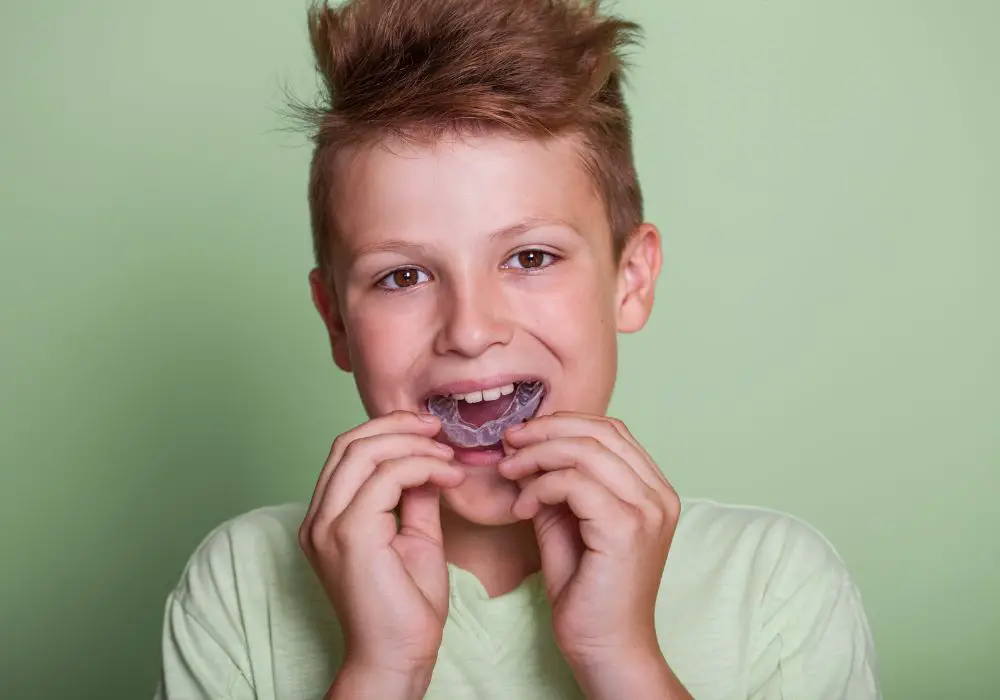
Pharmacological deworming forms the cornerstone of treating bruxism arising from worm infections:
- Anthelmintic drugs – Medications like albendazole, mebendazole, and pyrantel pamoate are prescribed to eradicate gastrointestinal worms. Most standard treatments last 1-3 days.
- For severe roundworm infections, ivermectin may be used as it permeates tissues better. Follow-up stool testing helps confirm parasite clearance.
- Topical anesthetics – Over-the-counter numbing gels or sprays can provide temporary relief of bruxism symptoms by dulling nerve sensation.
- Dental nightguard – A custom mouthguard worn at night cushions teeth from damage. This helps manage bruxism while drug treatment works to eliminate the underlying worms.
With effective anti-parasitic treatment, complete remission of bruxism is achievable in many pediatric cases. One clinical trial found bruxism resolved in over 75% of kids after they received just a single dose of an anthelmintic medication targeting identified worms.
For lasting results, parents must be vigilant about medication adherence and follow-up testing to verify worms are fully eliminated. Prompt re-treatment is key if stool exams reveal lingering parasites.
Can bruxism return after worm eradication?
Removing the root parasitic infection with pharmaceutical drugs often leads to sustained resolution of pediatric bruxism. But some kids may experience a recurrence of teeth grinding down the road even with successful worm treatment.
This is because while the initial episode may have been triggered by parasites, eventually the brain gets conditioned to the repetitive grinding habit. The worms are the cause, but the behavior itself becomes reinforced over time.
Factors such as family stress, academic pressure, poor sleep, nutritional deficiencies, and malocclusion of teeth may require ongoing management. Counseling, an improved diet, treatment of other conditions, and orthodontics can all promote bruxism relief.
For children with repetition of symptoms, doctors also screen for potential re-exposure to worms or other pathogens that could spark inflammation anew. Maintaining vigilant hygiene is key to prevent intestinal parasites from re-establishing in the child or family members.
Prevention of worm-related bruxism
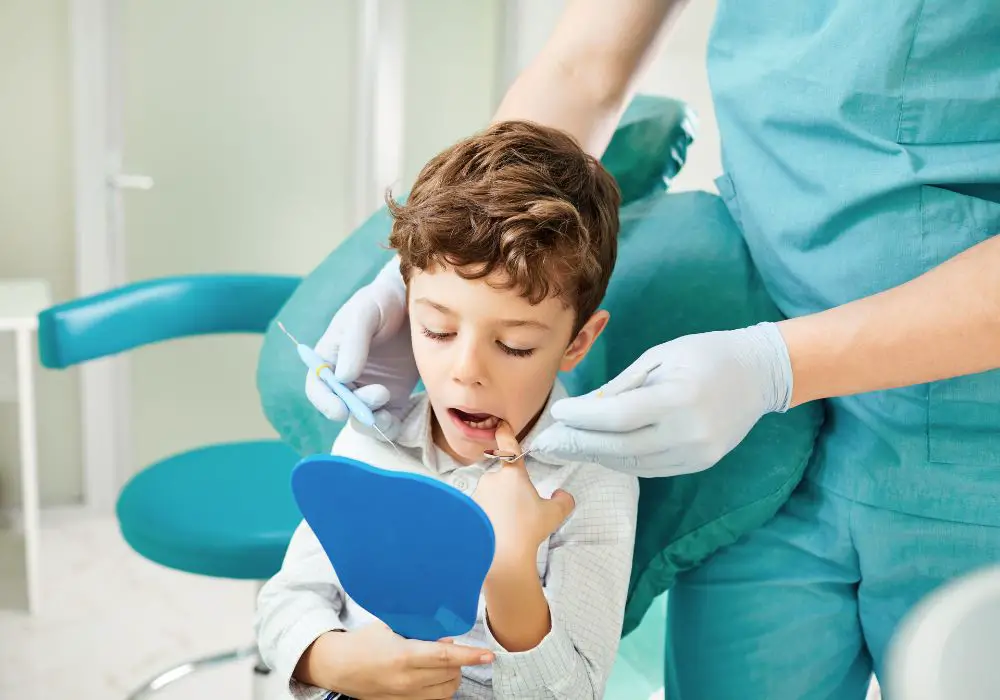
Public health initiatives striving to eliminate intestinal worms, particularly in developing regions with high infestation rates, may have potential to reduce bruxism prevalence. School-based deworming programs could be a key prevention strategy.
On an individual level, families can take steps to prevent worm-related bruxism through:
- Hand washing hygiene, especially before eating and after using the toilet
- Avoiding contaminated food and water when traveling
- Prompt washing of fruits and vegetables
- Cooking meats thoroughly
- Daily bathing and frequent laundering of bed linens and sleepwear
- Keeping children’s fingernails short and clean
- Treating pets for parasites and preventing access to outdoor spaces with feces
- Having regular stool testing for family members to detect and treat worms early
Paired with proper nutrition, low stress, good sleep habits, and follow-up dentistry, meticulous sanitary precautions help minimize risks of intestinal worms taking hold again. Stopping parasites before they start is ideal to prevent recurrence of bruxism.
Conclusion
While clearly not the sole factor, researchers have found fairly convincing evidence that intestinal parasites like pinworms and roundworms can serve as a trigger for bruxism in some children. The inflammation and nutritional disruption worms cause appear to generate nerve signals and muscular issues that result in involuntary grinding of teeth, especially during sleep.
Diagnosing and properly treating underlying parasitic infections with prescription medication allows many cases of bruxism to fully resolve once the origins are eliminated. But retraining the brain’s engrained grinding habit may require added modalities when symptoms persist post-treatment.
Ongoing stress and sleep management, nutritional optimization, orthodontic care, and topical anesthetics can all help recalibrate the child’s system for sustained relief from bruxism in the absence of parasites. With a multifaceted approach, most pediatric patients eventually outgrow the condition.
Frequently Asked Questions
What are the most common worm infections implicated in pediatric bruxism?
Research most strongly links the intestinal parasites pinworms and roundworms to bruxism in kids. Whipworms and hookworms are also possibly contributory.
How can doctors diagnose worm infections causing bruxism?
Doctors use stool tests, bloodwork, patient history, and sometimes endoscopy to check for the presence of parasitic organisms. Nighttime teeth grinding and anal itching are telling symptoms.
Does deworming medication permanently stop bruxism?
Antiparasitic drugs like albendazole often provide lasting resolution of bruxism by eliminating the underlying worms. But some kids grind their teeth again later as a lingering habit even without active infection.
Why might bruxism return after successful worm eradication?
If the grinding habit is firmly established in the brain, the condition may recur due to factors like stress, poor sleep, nutritional issues, and dental alignment problems. Doctors look for potential reinfection with parasites as well.
Are there any home remedies to help bruxism symptoms?
Massaging the jaw, applying ice packs, and using natural numbing gels from herbs or aloe vera may temporarily relieve discomfort from bruxism. But medical deworming treatment is still required to address the root cause.


